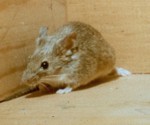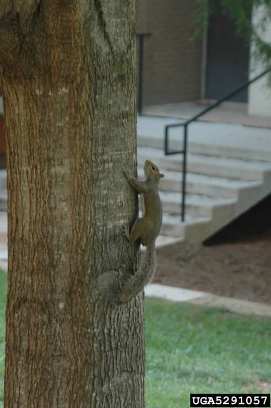 Tackling rodent infestations involves dealing with structural and sanitary issues – and the time to check your South Jersey home is NOW! As the cool weather settles in, rodents begin to head indoors, looking for warm places to nest.
Tackling rodent infestations involves dealing with structural and sanitary issues – and the time to check your South Jersey home is NOW! As the cool weather settles in, rodents begin to head indoors, looking for warm places to nest.
1. Look for the signs of rodent’s presence.
Mice come in to explore and get food, and they’ll continue to come and go as long as there are entry points.
Tell-tale signs of mice include “rub marks” on walls from their oily fur and droppings that are smaller than a grain of rice with pointy edges.
It’s helpful to be aware what attracts vermin. Infestations can be more common near schools and restaurants — where lots of trash bags are piled up with plenty of food for rodents. Digging and demolition disturb established populations that will head off looking for a new home.
2. Look for ALL possible entry points and seal them.
Every crack needs to be patched to prevent an infestation.
Rodents can squeeze through amazingly small spaces – if you can see light through a crack, a rodent can enter.
Look at doors and windows, around the foundation, and any place anything enters the building, like plumbing, electrical wires, phone, cable or gas.
3. Use the right materials to seal cracks.
A lot of DIYers will use only steel wool or caulk to seal cracks. But those are just stop gaps.
Caulk is not enough – rodents can chew through such materials. Sheet metal, cement, and metal wire mesh are better sealants.
Steel wool can be moved by mice over time, especially if it’s not compacted well since wooden floors tend to move and swell in high humidity.
4. Keep things clean in your home and basement.
If you control the numbers in the basement you should be able to control the numbers upstairs.
It’s also important to seal up access to food in your home and keep areas free of dirt and clutter.
5. Traps and bait aren’t the only answer.
If entry points are not sealed, the rodents will return. Mice often live in families of up to 30.
Many chemicals used against rodents can be dangerous if improperly used which is why using a professional to get rid of infestations and prevent future ones is important.
6. Don’t count on cats.
Yes, a cat can be helpful, but it depends on the cat. Some are natural hunters and some are scared of mice.
A fearless cat can catch some rodents, but it won’t wipe out an infestation and the problem will continue until entry points are sealed off.
7. If you’re buying a new home or renovating, call a pest control expert.
House hunters should tour a building’s basement to see how well maintained it is and if there are signs of rodent infestations.
For those planning any major renovations, it also helps to call an expert to seal up gaps.
In a kitchen renovation, the ideal time is when the floor is finished and appliances are installed but before the cabinets are put on.

Keep the critters from coming in out of the cold this winter. We will thoroughly inspect the outside of your home for the cracks and crevices that mice, other rodents, spiders, and crickets use to invade your space looking for a warm place to winter.
If you need help reducing your risk of a winter pest invasion, give us a call!
